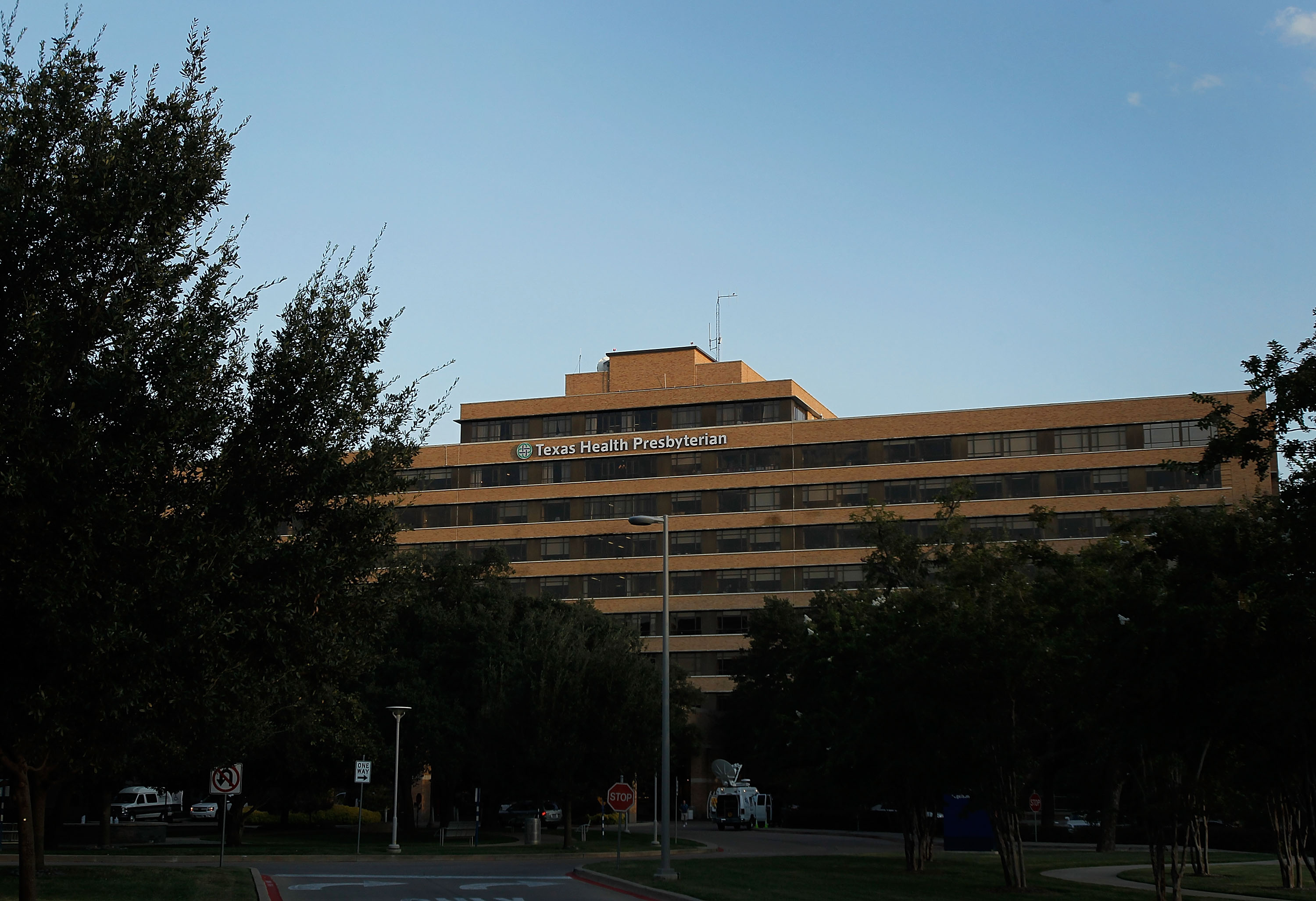A hospital in Dallas that diagnosed America's first-ever known Ebola case also failed to recognize the patient's Ebola potential when he first sought care, missing an opportunity to isolate him when he was already contagious.
The patient, Thomas Eric Duncan, had been visiting the US from Liberia. He left Monrovia on September 19 and traveled through Brussels, arriving in the US on September 20. He had no symptoms when he was departing Liberia or entering the US, which means he wouldn't have been infectious at the time.

A hospital in Dallas that diagnosed America's first-ever known Ebola case also failed to recognize the patient's Ebola potential when he first sought care, missing an opportunity to isolate him when he was already contagious.The patient, Thomas Eric Duncan, had been visiting the US from Liberia. He left Monrovia on September 19 and traveled through Brussels, arriving in the US on September 20. He had no symptoms when he was departing Liberia or entering the US, which means he wouldn't have been infectious at the time.
Four days later, he started to feel ill. Two days after that, he sought care at Texas Health Presbyterian Hospital. His was diagnosed with a 'low grade viral infection' and sent home with an antibiotic. The patient's sister said that Duncan told a nurse that he had just been to Liberia, where the New York Times reports he had recently quit his job at a Monrovia shipping company. That nurse failed to communicate this vital information to the rest of the team, and Ebola was not suspected. CDC guidance not followed
If this is correct, the hospital did not follow CDC guidance. In advance of Ebola ever reaching America, the CDC put out guidance for health workers, including this recommendation: 'Treat all symptomatic travelers returning from affected West African countries as potential cases and obtain additional history.'A thorough medical history can help health professionals diagnose between 70 and 90 percent of illnesses.By September 28, Duncan had fallen gravely ill. He was sent to Texas Presbyterian in an ambulance. At that point, he was running a high fever and vomiting. This time, hospital staff suspected Ebola and the patient was placed in an isolation unit. On September 30, the CDC confirmed that he has Ebola. Public health authorities following potential cases
Right now, the CDC and local health authorities are working to find and follow-up with all the people who would have come into contact with Duncan. There are between 12 and 18 people reportedly at risk, including five school children who attend four schools. So far no one has fallen ill. The three members of the ambulance crew that transported the patient to the hospital have tested negative for Ebola, Reuters reported, and they are being monitored.Health officials are not concerned about the people who shared Duncan's flight, since he was not symptomatic then and shedding the virus. The CDC director Tom Frieden said, 'There is zero risk of transmission on the flight.'Se'There is zero risk of transmission on the flight'veral of Duncan's family members in the US, who were exposed to him while he was ill, remain the main concern. According to the New York Times, Duncan may have contracted the virus from his landlord's daughter, when he helped carry the girl to the hospital. 'It is certainly possible that someone who had contact with this individual... could develop Ebola in the coming weeks,' Frieden said. Still, he added: 'I have no doubt we will stop this in its tracks in the US. I also have no doubt as long as this continues in Africa, we need to be on guard.' We've had hemorrhagic fevers in the US that didn't spread
He has reason to be confident. While the Texas patient is the first-ever diagnosed with Ebola in America, several travelers have brought similarly deadly viruses to the US in the past and didn't give them to anyone.There have been four cases of Lassa hemorrhagic fever, a viral infection common in West Africa, here. This isn't surprising since Lassa infects up to 300,000 people in Africa each year, which makes it a lot more common than Ebola. Like Ebola, Lassa isn't easily spread - only through contact body fluids - so, reassuringly, there were no secondary cases here. We've also had one case of Marburg, another hemorrhagic fever, imported to the US in a traveler from Uganda. Again, the patient didn't transmit the virus to anyone else.
Post By http://www.vox.com/2014/10/1/6881735/ebola-virus-US-liberian-patient-outbreak-dallas
0 comments Blogger 0 Facebook
Post a Comment